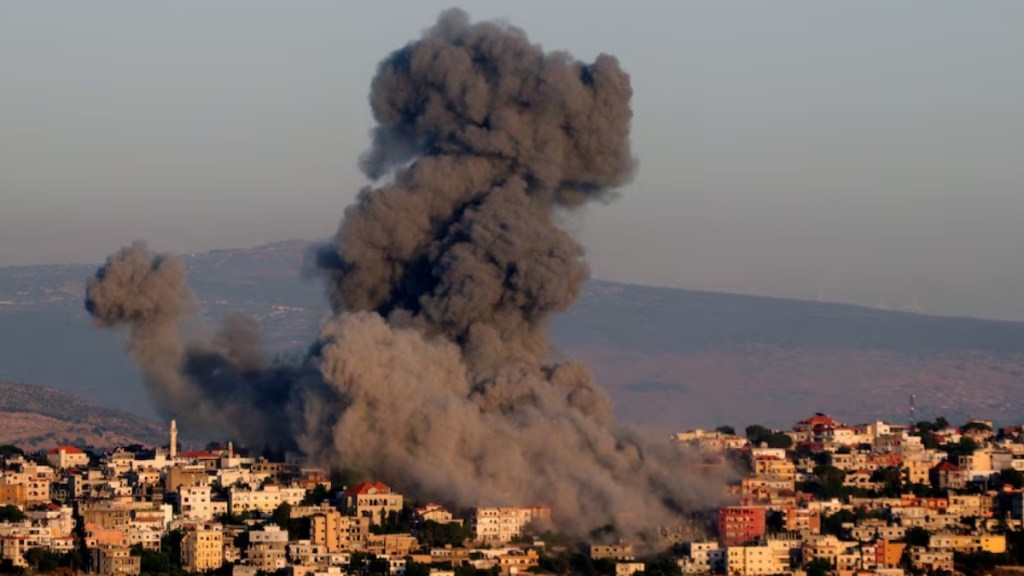At least 37 people were killed in an Israeli airstrike on a Beirut suburb on Friday, according to the Lebanese health ministry. Among the dead were three children and seven women, making this the deadliest strike in the ongoing year-long conflict between Hezbollah and Israel.
Hezbollah reported that 16 of its members were killed in the attack, including senior leader Ibrahim Aqil and top commander Ahmed Wahbi. This strike significantly escalated tensions between Israel and the Iran-backed group, following earlier attacks this week that caused explosions in pagers and walkie-talkies used by Hezbollah members, bringing the death toll from those incidents to 39, with over 3,000 people injured.
While Israel has not officially confirmed its involvement in these earlier attacks on communications devices, they are widely believed to have been carried out by Israeli forces. The Hezbollah-aligned Lebanese Transport Minister, Ali Hamieh, stated that 23 people were still missing following Friday’s airstrike, which caused extensive damage to buildings, including a nearby nursery.
“The Israeli enemy is pushing the region towards war,” Hamieh said, while confirming that the ministry had sent resources to assist in rescue efforts. “We’ve been pulling out women and children from under the rubble,” he added.
Hezbollah confirmed Aqil’s death in a statement, calling him “one of its top leaders,” and said 15 other members, including senior commander Wahbi, who had overseen Radwan special forces operations during the Gaza war, were also killed in the strike.
The airstrike targeted a building adjacent to a nursery, with multiple missiles hitting the garage, according to security sources. The explosion destroyed the lower levels of the building, where Aqil and other commanders were reportedly meeting.
In a brief statement on Friday, Israeli Prime Minister Benjamin Netanyahu emphasized that Israel’s goals were clear and its actions “spoke for themselves.” Israeli Defense Minister Yoav Gallant, who announced a new phase of war on the northern front this week, stated: “The sequence of actions in this new phase will continue until our goal is achieved: the safe return of the residents of the north to their homes.”
Tens of thousands of people have been evacuated from homes along the Israel-Lebanon border since Hezbollah began firing rockets at Israel in October in solidarity with Palestinians amid the year-long conflict between Israel and Hamas in Gaza. Israel’s military also closed northern airspace to private flights on Saturday, but international flights remain unaffected.
The current conflict between Israel and Hezbollah, with over 70 people killed in Lebanon this week alone, marks the worst violence since the 2006 war. The death toll in Lebanon since October has surpassed 740. U.N. Special Coordinator for Lebanon, Jeanine Hennis-Plasschaert, called the recent escalation “an extremely dangerous cycle of violence with devastating consequences,” urging an immediate halt to the hostilities.
This latest strike follows another Israeli attack in July that killed Fuad Shukr, a top Hezbollah military commander in Beirut. While the conflict has mainly been contained to border regions, recent escalations raise concerns that it may widen further.
(With agency inputs)

